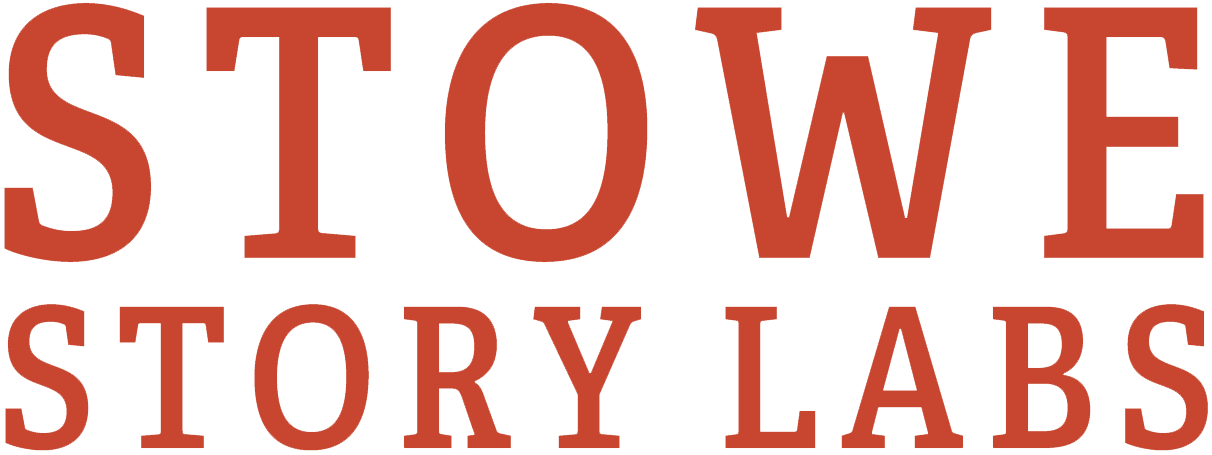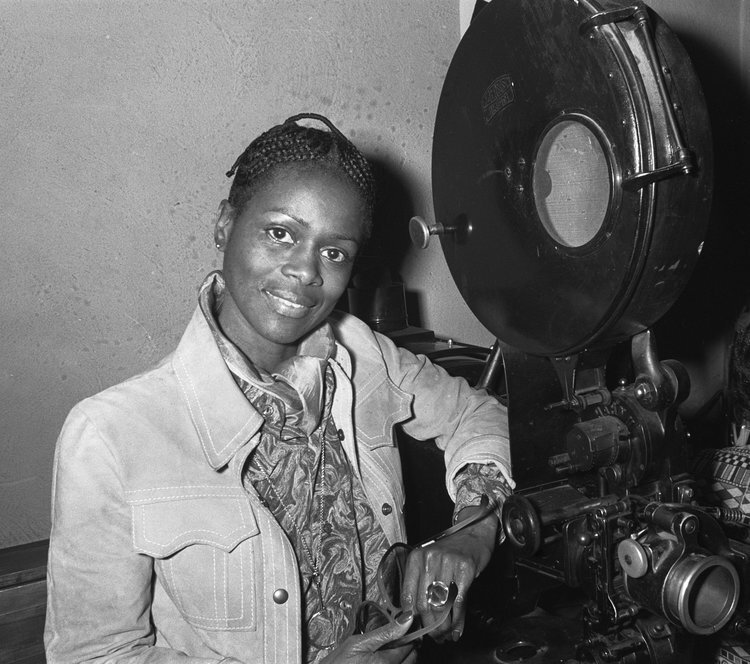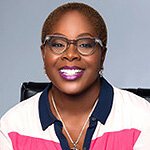Testimony of a Creative Black Female Soul
By Robyn Greene Arrington
“I’m poor, black, I may even be ugly, but dear God, I'm here, I'm here.”
Celie, The Color Purple
”You is kind. You is smart. You is important.”
Aibileen Clark, The Help
“…as fuck.”
Issa Rae, Insecure
“We need to tell the story our way. We’ve got a hero, we’ve got a victim, now we just need to finish the job, give the press their villain.”
Olivia Pope, Scandal
Just as diverse as these memorable lines are, so are the black actresses that gave them voice. These chocolate thespians represent the plethora of black women in every shape, size and form with a potpourri of differing experiences. Yet telling their own stories on the big and little screens has been the longest of rollercoaster rides.
The 2017 Emmy Award Winner for outstanding writing for a comedy series, Lena Waithe, used her acceptance speech as rallying cry for all the underrepresented. She pleaded we continue to live our dreams out loud:
I see each and every one of you. The things that make us different, those are our superpowers — every day when you walk out the door and put on your imaginary cape and go out there and conquer the world because the world would not be as beautiful as it is if we weren't in it.
Cicely Tyson on set, 1973
I can’t honestly say I dealt with overt racism or sexism on my career journey, however the stench always lingered. I suffered insidious slights, like being told by a senior cable executive I was paid less for a project than my white male counterpart because “I wasn’t married and didn’t have a mortgage.” I remember as a freelancer having to prove myself worthy to do mainstream promotional spots for creative services departments at different cable networks. This extra effort paid off. It magnified my aptitude and creativity.
My mom and dad, like many Black parents, explained to me at a very early age I would have to work twice as hard to get half of what folks who didn’t look like me did. So hard work didn’t scare me, instead it helped me transcend barriers. People in power took notice of my work ethic and creativeness. Many became mentors and advocates for me.
My career path as content creator is uniquely mine. Yet it intersects with those of many other writers, producers, directors, executives and actresses who are also of a brown hue. I didn’t ease on down the yellow brick road but I also didn’t have to survive dungeons and dragons. I stand on the shoulders of the courageous content pioneers such as Frederick Douglass, Ida B. Wells,W. E. B. DuBois, Oscar Micheaux, Spencer Williams, Zora Neale Hurston, Langston Hughes, Hattie McDaniel, Dorothy Dandridge, Nat King Cole, Gordon Parks, Sidney Poitier, Daisy Bates, Diahann Carroll, Melvin Van Peebles, Ivan Dixon, Michael Schultz, Suzanne de Passe, Cicely Tyson and Cathy Hughes.
My appreciation of history was nurtured as a child by listening to my family’s griot-styled memories. Reading was also one of my favorite pastimes. But my love affair with words wasn't only a result of books. The lyrics of music at home...in the car...at church…and even at the opera, enchanted me. Watching tales on the movie and TV screens as well as on stage ignited my fascination with story. So when it was time for college, majoring in broadcast journalism just made sense. I was going to be an on-air news anchor.
I just knew I was going to be the next Jessica Savitch, Linda Ellerbee or Barbara Walters. At that time, I didn’t see established reflections of me to emulate. Oprah had just begun her national talk show; Charlayne Hunter-Gault was a national correspondent at on the less viewed PBS; Gwell Ifilll hadn’t made her mark at PBS; neither had Carole Simpson at ABC nor Norma Quarles at CNN.
Yet along the way I had epiphanies that changed the trajectory of my initial career goal. One of the most memorable turning points was learning about the “n----- on a Saturday night” rule practiced by many major news organizations. As my well-intentioned New York University professor from a major daily publication explained, this unspoken but widespread rule was that news about black people only mattered if there weren’t any other happenings. That professor was trying to encourage my classmates and me to be better than the status quo. He succeeded in doing that as well as fortifying my resolve to tell unbiased stories.
The next development that shifted my on-camera goal was a documentary class that expanded my view of journalism. It elevated my career aspirations from personal glory and fame to the exploration and uplift of humanity.
The third watershed moment was when another NYU professor took me aside during the assignment of roles for the senior class' mock newscast. He stated that my ability to manage the differing personalities of my classmates as well as juggle the various aspects of the assignment was the very essence of producing.
I graduated undergrad with more than book smarts. I had learned to be flexible thus allowing me to grow. Confident that I wanted to produce long-form multi-cultural content—before it was a fad—I went off to grad school to study television, radio and film production.
After my graduate studies were completed, real-life lessons began. Immediately, I was thrust into the workforce. It became crystal clear the continuous cycle of what I have coined the Rs…relationships, resourcefulness, resilience were fundamental to building my career.
When I lost a bid for a coveted job at HBO, I was totally devastated. Yet my interview for that job had gone so well the hiring manager referred me to the freelance pool for creative services.
As a perma-lancer at HBO, I enjoyed the most diverse work environment of my career. I was also afforded an office in New York City’s Times Square, and the flexibility to work on outside projects.
A music executive I met while freelancing at Def Jam hired me to produce an independent film which she was executive producing as a side project for her writer/director classmate.
Although that film was a bust, the writer/director recognized my production acumen, and asked me to produce his next film, “Hav Plenty.” This quirky romantic comedy would go on to be a critically-acclaimed cult classic, and a career changer for me. “Hav Plenty” screened at the renowned Toronto and Sundance film festivals before its national release in theaters.
The pressure for me to move to Hollywood after that achievement was tremendous. But in my soul, I knew I needed to stay in NY, where I couldn’t escape the full spectrum of humanity. Freelancing and success bolstered both my confidence to continue walking as well as working by faith.
I freelanced at Lifetime, CNN, A&E, BET, and after a decade, I took a full-time job at the latter as a senior preditor (producer/editor) which included managing a staff of eight. Almost exactly a year to when I became a full-time staffer at BET, I stepped out on faith again to freelance for the then start-up TV One.
I just celebrated my 12-year anniversary as a full-timer at TV One. I rose from Director of Programming & Production to Vice President of the same department. During my tenure, I have produced lifestyle, factual, reality and scripted programming while maintaining through five company leadership changes, and six heads of my department.
As I reflect on my career, I can clearly see each obstacle as opportunity and stepping-stone to the next. I sustain myself professionally with my newly coined Ps: preparation, purpose, passion, persistence and perseverance.
One cautionary note: maintain work/life balance. Your health is your first priority. Your family is next. So set appropriate boundaries. Disconnecting at a set time of the day is important. Also be sure to keep honing your craft and expanding your skillset. This will keep you viable in the marketplace as well as afford you multiple-streams of income.
My grad school screenwriting professor at Syracuse University once said, “Robyn you are a great writer. But once you live a little you will be an amazing one.” Well I have lived a lot—even cheated death a few times. I have survived long enough to be in The Age of Oprah, Shonda and Ava. Each lady—powerhouse—is a harbinger of what could be. The future is definitely ripe for an inclusive film, television and digital community that reflect all of its viewers through varied lens. Creatives and suits must represent the diverse world we all share. We must get back to the basics of telling universal stories about humanity.
Ultimately, words are my ground zero. At present, I am in the midst of a self-designed master writing program. This will ultimately be the signature course I teach. But at present, it is my preparation for my dream to be a professional writer when I leave the corporate world of entertainment.
Content should not be black and white. The human experience is Technicolor, full of trials and triumphs. My being Black and female only enriches the global story of us. We are all here. We all can be kind. We all can be smart by embracing the fact that we are all important. Once again, I am stepping out on faith that we, the writers, are the protagonists in a future full of not just his story but all of our stories.
Robyn Greene Arrington
Robyn Greene Arrington is the Vice President of Programming & Production at TV One. Writing is her passion as is paying her blessings forward. Hence her role as a Stowe Story Labs mentor.


